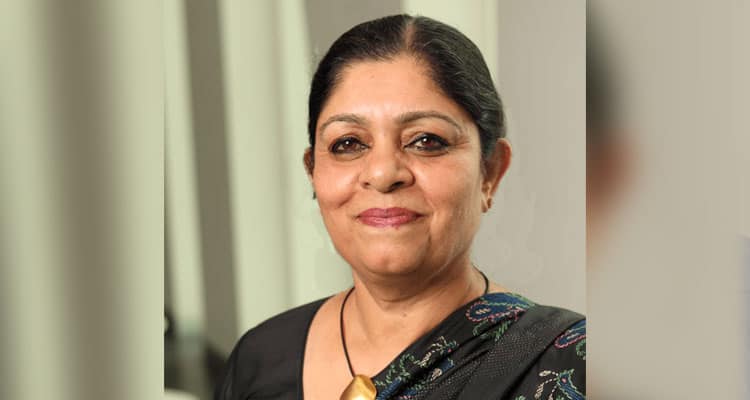Poonam Muttreja, Executive Director, Population Foundation of India highlights that despite the efforts made, inequities in healthcare coverage, health outcomes and financial protection continue to be the biggest challenge in ensuring access to family planning services
The International Conference on Family Planning, or ICFP, has been bringing together the international development community with a common goal of prioritising the family planning and sexual and reproductive health agenda. The ICFP has become an important international platform where researchers, advocates, governments, and communities can share their learnings. This year’s conference, the fourth of its kind, scheduled to take place between 14 and 17 November 2022, underscores the key role that family planning plays in achieving Universal Health Coverage (UHC).
UHC refers to an environment where every individual has equitable access to the health services they need and availing them does not plunge one into financial hardship. The Sustainable Development Goals—which 193 UN member nations, including India, have committed to—call for all individuals and communities to be provided affordable access to necessary, high-quality health care by 2030.
Family planning is an essential component of UHC and refers to the provision of quality sexual and reproductive health services, information, and quality-assured contraceptive methods.
Over the years, India has introduced several programmes and policies with the ultimate objective of achieving UHC. According to the National Health Policy of 2017, every individual should be able to maintain their health and access high-quality medical treatment without astronomical out-of-pocket costs. In 2018, the central government launched the Ayushman Bharat-Pradhan Mantri Jan Aarogya Yojana (PMJAY) and Health and Wellness Centres (HWC). PMJAY, the world’s largest public health insurance scheme, seeks to provide better healthcare and treatment to underprivileged sections of society. The HWC is an attempt to deliver comprehensive primary health care, that is universal and free to users, with a focus on wellness and the delivery of an expanded range of services closer to the community.
Family planning services have been delivered through the public healthcare system for almost 70 years and need to be an integral part of the PMJAY as well. The Indian government has made considerable progress over the years, culminating in the country achieving the replacement-level fertility rate. It has introduced new contraceptive methods in the public health system, improved the delivery of family planning services, provided counselling to clients at their doorsteps by ASHAs, besides implementing innovative programmes such as the Mission Parivar Vikas.
Despite the efforts made, inequities in healthcare coverage, health outcomes and financial protection continue to be the biggest challenge in ensuring access to family planning services. According to the fifth round of the National Family Health Survey (2019-21), as many as 9.4 per cent of married women in the reproductive age group (15-49 years) across India have an unmet need for family planning. The COVID-19 pandemic further disrupted many essential health services, including family planning services, thereby exacerbating unmet need for family planning.
There are variations in access to and use of FP services due to various reasons. The Modern Contraceptive Prevalence Rate (MCPR) differs according to where people live—urban (58.5 per cent) and rural (55.5 per cent). The MCPR also varies according to wealth, it stands at 50.7 per cent for people in the lowest wealth quintile and at 58.7 per cent for those in the highest wealth quintile. The demand for modern contraceptives is also met according to where people live—while 24.7 per cent of those seeking modern contraceptives had access in Manipur, the number stood at 93.5 per cent in Andhra Pradesh. Education, too, was an important factor. The Total Fertility Rate of women with more than 12 years of schooling was 1.78 children whereas women with no education had 2.82 children on an average.
Thus, addressing unmet need for family planning would be key to achieving UHC, which would not only entail “wide coverage,” but also ensuring that the system delivers what people want. Besides building the capacity of health workers to deliver quality people-centred care, we also need to see self-care as an important element of UHC. COVID-19 demonstrated the need for evidence-based self-care interventions, and how they could lighten the burden on the public health system. The ICFP would be a great opportunity to learn about other such innovative policy interventions that can help us reach our health goals.
A strong primary healthcare system will be the foundation for achieving UHC, particularly in maximising the range and reach of available contraceptive options. India’s health-care system includes both public and private health-care service providers. Achieving UHC will require involvement and investments by the private sector as well, which caters to the health needs of more than 75 per cent of the population. Citizens’ engagement and inclusion of diverse views would be imperative if we are to make health coverage truly universal. ICFP 2022 will be a strategic benchmark for the larger family planning community as it works towards its goal of ensuring universal, equitable and uninterrupted access to choice-based family planning and sexual and reproductive health services, access by 2030.
- Advertisement -


